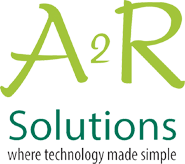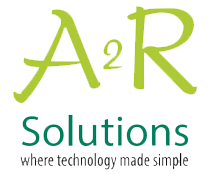
Payroll Software Companies in Dubai, Payroll Management Software in Dubai
Introduction
In the bustling business landscape of Dubai, efficient payroll management is crucial. As
companies grow and the workforce diversifies, managing payroll manually becomes increasingly
challenging. This is where payroll management software comes into play, revolutionizing how
businesses handle salaries, deductions, taxes, and compliance. In this article, we’ll delve into the
significance of payroll software in Dubai, explore top providers, and discuss what you need to
consider when choosing the right solution for your business.
Why Businesses in Dubai Need Payroll Software
Compliance with UAE Labor Laws
Dubai’s dynamic economic environment is governed by strict labor laws and regulations. Payroll
software ensures businesses comply with these regulations, minimizing the risk of legal issues
and penalties. It automatically updates with changes in labor laws, keeping your business
compliant without the constant need for manual intervention.
Efficiency and Accuracy
Payroll software significantly enhances the efficiency and accuracy of payroll processing. It
automates repetitive tasks such as salary calculations, tax deductions, and benefits distribution.
This not only saves time but also reduces the likelihood of errors, ensuring employees are paid
accurately and on time.
Cost Savings
Implementing payroll software can lead to substantial cost savings. By automating payroll
processes, businesses can reduce the need for a large payroll staff, minimize errors that could
lead to costly corrections, and avoid penalties for non-compliance with labor laws.
Key Features of Payroll Software
Automated Payroll Processing
One of the primary features of payroll software is automated payroll processing. This includes
calculating wages, withholding taxes, and ensuring timely payment to employees. Automation
reduces the administrative burden on HR departments and ensures accuracy.
Tax Calculation and Filing
Payroll software helps businesses manage tax obligations by automatically calculating tax
withholdings and generating necessary tax forms. Some advanced systems also offer e-filing
capabilities, making the tax filing process seamless.
Employee Self-Service Portals
Modern payroll software often includes employee self-service portals. These portals allow
employees to access their payroll information, view pay stubs, request time off, and update
personal details. This feature empowers employees and reduces the administrative load on HR
departments.
Reporting and Analytics
Effective payroll management software provides robust reporting and analytics tools. Businesses
can generate detailed reports on payroll expenses, tax liabilities, and compliance status. These
insights help in making informed decisions and optimizing payroll processes.
Factors to Consider When Choosing Payroll Software
User-Friendliness
The software should have an intuitive interface that is easy to navigate. This ensures that HR
staff can quickly learn and efficiently use the system.
Customization Options
Every business has unique payroll needs. Choose software that offers customization options to
tailor the system to your specific requirements.
Customer Support
Reliable customer support is essential. Ensure the provider offers robust support options,
including live chat, phone support, and comprehensive online resources.
Integration Capabilities
The ability to integrate with other business systems, such as accounting software and HR
management systems, is crucial for streamlined operations.
Benefits of Using Payroll Management Software
Streamlined Operations
Payroll software streamlines payroll processes, reducing the time and effort required to manage
payroll tasks. This allows HR departments to focus on more strategic activities.
Enhanced Security
Payroll data is highly sensitive. Payroll software offers advanced security features to protect this
data, including encryption, access controls, and secure backups.
Reduced Errors
Automation minimizes the risk of human error, ensuring accurate payroll calculations and
reducing the likelihood of costly mistakes.
Improved Compliance
Staying compliant with local labor laws and tax regulations is easier with payroll software. It
ensures that all calculations and filings are accurate and up-to-date with current laws.
Challenges in Implementing Payroll Software
Initial Setup Costs
The initial cost of purchasing and setting up payroll software can be significant. However, the
long-term benefits often outweigh these initial expenses.
Data Migration Issues
Transferring existing payroll data to a new system can be challenging. It’s crucial to ensure
accurate data migration to avoid discrepancies.
Training Employees
Employees need to be trained to use the new system effectively. This requires time and resources
but is essential for maximizing the software’s benefits.
Future Trends in Payroll Software
AI and Machine Learning Integration
The integration of AI and machine learning in payroll software is on the rise. These technologies
can predict payroll trends, automate complex calculations, and enhance decision-making.
Cloud-Based Solutions
Cloud-based payroll solutions offer flexibility and accessibility, allowing businesses to manage
payroll from anywhere with an internet connection.
Mobile Access
Mobile-friendly payroll software enables employees and managers to access payroll information
and perform tasks on the go, increasing convenience and productivity.
How to Transition from Manual to Automated Payroll Systems
Steps for a Smooth Transition
- Assess Your Needs: Determine what features you need from a payroll system.
- Choose the Right Software: Select a solution that fits your business requirements.
- Plan the Implementation: Develop a detailed implementation plan, including timelines
and responsibilities. - Train Your Team: Provide comprehensive training to ensure your team can effectively
use the new system. - Monitor and Adjust: Continuously monitor the system and make necessary adjustments
to optimize performance.
Comparing Payroll Software: Local vs. International Providers
Pros and Cons of Local Providers
Pros:
Understanding of local laws and regulations
Easier communication and support
Customized solutions for the local market
Cons:
Limited features compared to international providers
Smaller customer support teams
Pros and Cons of International Providers
Pros:
Advanced features and technology
Large support teams
Global expertise
Cons:
May lack understanding of local nuances
Potentially higher costs
Legal and Regulatory Considerations
Data Privacy Regulations
Payroll software must comply with data privacy regulations to protect sensitive employee
information. Ensure your provider adheres to local and international data protection laws.
Compliance with Local Laws
The software should be designed to comply with local labor laws and tax regulations. This
ensures that your payroll processes are legally compliant and reduces the risk of penalties.
Conclusion
In conclusion, payroll management software is an essential tool for businesses in Dubai. It offers
numerous benefits, including increased efficiency, accuracy, and compliance with local laws. By
choosing the right payroll software, companies can streamline their payroll processes, reduce
costs, and ensure their employees are paid accurately and on time. Whether you opt for a local or
international provider, the key is to find a solution that meets your specific business needs.
Are you looking for accounting software companies in Dubai, business accounting software companies in Dubai, HR & Payroll software companies in Dubai, sage 50 UK accounting software in Dubai or sage 300 erp in Dubai at very competitive pricing? Contact us for accounting software companies in Dubai, business accounting software companies in Dubai, HR & Payroll software companies in Dubai, sage 50 UK accounting software in Dubai or sage 300 erp in Dubai at very genuine pricing.



